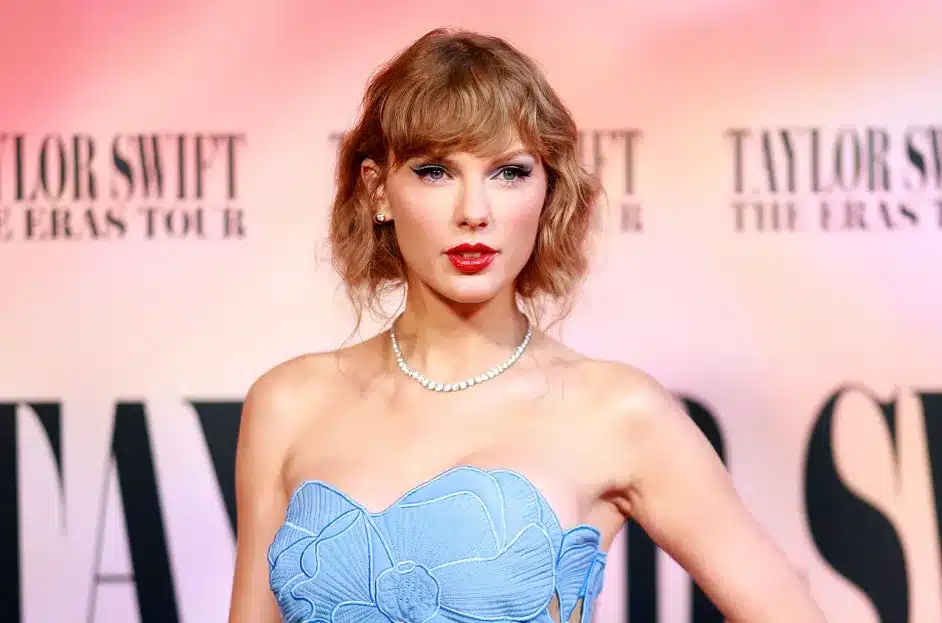Celebrity
Elon Musk Visits Destroyed Kibbutz and Meets Netanyahu in Wake of Antisemitic Post

Elon Musk visited Israel on Monday, meeting with leaders and touring through a kibbutz destroyed by Hamas last month in an attempt to quell criticism over his support for an anti-Semitic remark on his social media platform, X.
Israeli Prime Minister Benjamin Netanyahu drove Musk to Kfar Azza, one of the kibbutzim targeted on October 7. Abigail Edan, a four-year-old American dual citizen kidnapped by the militant group that day and released the next day, lived on the kibbutz.
Musk agreed with Netanyahu in a live online conversation on X on Monday that Israel must eliminate Hamas.
“Those who intend to murder must be stopped. The propaganda must then cease,” Musk stated. “They’re just training people to be murderers.”
He also stated that Gaza must be “prosperous.”
“If (all) that happens, I think it will be a good future,” he said. “I’d love to help.”
Musk also met behind closed doors with Israeli President Isaac Herzog.
According to a readout from the meeting, Herzog pushed Musk to combat internet antisemitism.
“Unfortunately, we are inundated with antisemitism, which is hatred of Jews,” Herzog said in a statement. “I think we need to fight this together, because the platforms you lead, unfortunately, have a large reservoir of hatred, hatred of Jews, antisemitism.”
According to an earlier statement from the president’s office, representatives from the families of Hamas hostage families attended the meeting to express “the horrors of the Hamas terror attack, as well as the ongoing pain and uncertainty for those held captive.”
According to the Israeli government press office, Israeli officials recounted what had happened to Musk during the visit to the damaged kibbutz.
“The prime minister and Musk then proceeded to the Edan family home, where Musk heard about the family story of four-year-old Abigail Edan, whose parents were murdered and who was kidnapped to Gaza and released yesterday from Hamas captivity,” the office of the prime minister said.
The billionaire’s trip to Israel comes less than a week after he agreed with the notion that Jewish communities incite “hatred against Whites,” prompting a condemnation from the White House and a significant departure of advertisers from X, the platform formerly known as Twitter.
One user accused Jewish groups earlier this month in an X post of “pushing the exact kind of dialectical hatred against whites that they claim to want people to stop using against them.” The message allegedly alluded to “hordes of minorities” invading Western countries, a common antisemitic conspiracy theory.
Musk responded, “You have said the actual truth.”
Online hate organizations have promoted the antisemitic conspiracy idea that Jews intend to import illegal minority populations into Western countries to diminish the White majority in such countries.
Musk then stated in subsequent posts that he does not believe hatred of White people extends “to all Jewish communities.”
However, he claimed that the Anti-Defamation League (ADL), a global anti-antisemitism group, “unjustly attacks the majority of the West, despite the majority of the West supporting the Jewish people and Israel.” This is because, according to their own beliefs, they cannot attack the minority groups that constitute their major threat.”
The remarks, which coincide with an increase in hate crimes against Jews and Muslims in the United States, attracted rapid condemnation from human rights organizations and politicians.
Musk has also disputed racist accusations, writing on X last week that any assertions that he is antisemitic are “far from the truth.”
The problem is becoming too tough for X to ignore. The controversy has quickly developed into a serious business nightmare for the corporation, with at least a dozen large brands suspending advertising spending as of last Wednesday. Disney, IBM, Fox Sports, and even the European Commission are among them.
Elon Musk visited Israel on Monday, meeting with leaders and touring through a kibbutz destroyed by Hamas last month
Even before the present upheaval, X had been chastised for the abundance of antisemitic content on their network. Organizations like as the Anti-Defamation League (ADL) and the Center for Countering Digital Hate had documented a spike in hate speech on X in the previous year, which Musk either criticized or disputed.
Musk vowed to sue the ADL for defamation in September, alleging that the group’s reports had damaged advertising sales on X.
More recently, the organization has observed a significant spike in antisemitic posts on X, notably after the beginning of the Israel-Hamas war in early October.
X has responded to similar charges made by the progressive media watchdog Media Matters, which highlighted antisemitic and pro-Nazi content on X in a previous analysis.
In response, X has sued Media Matters, claiming that the organization overstated the likelihood of adverts running alongside extremist content on the platform. It has also asked its advertising partners to assist in defending what it refers to as “freedom of speech.”
Musk’s visit to Israel coincides with a cessation of hostilities with Hamas. In the first three days of a truce, Hamas released 58 captives, mostly women and children, in exchange for the release of 117 Palestinian prisoners and has stated that it intends to extend the truce.
Herzog spoke to CNN’s Wolf Blitzer on Sunday about the bittersweet sensation of seeing freed prisoners reunited with their families.
“It’s something that gives us happiness, but of course, happiness with a lot of sorrow in it because there are at least 200 hostages still held out there,” Herzog told CNN’s Wolf Blitzer.
Herzog said the truce may be prolonged, citing the initial agreement that a day of ceasefire would be added for every ten hostages released, but that it was up to Hamas to liberate more prisoners.
SOURCE – (CNN)
Celebrity
Bernice Johnson Reagon, Whose Powerful Voice Helped Propel The Civil Rights Movement, Has Died

Nashville, Tennessee – Bernice Johnson Reagon, a musician and scholar who utilised her rich, powerful contralto voice to support the American Civil Rights Movement and global human rights campaigns, died on July 16, according to her daughter’s social media post. She was 81.
Reagon was best known as the founder of Sweet Honey in the Rock, an internationally recognized African American female cappella group that she managed from 1973 until her retirement in 2004. The Grammy-nominated group’s purpose has been to educate, empower, and entertain. They sing songs from various genres, including spirituals, children’s music, blues, and jazz. Some of their original compositions pay tribute to American civil rights leaders and foreign liberation movements, such as the struggle against apartheid in South Africa.
Bernice Johnson Reagon, Whose Powerful Voice Helped Propel The Civil Rights Movement, Has Died
“She was incredible,” said Tammy Kernodle, a prominent professor of music at Miami University with a focus on African American music. She referred to Reagon as someone “whose divine energy, intellect, and talent all intersect in such a way to initiate change in the atmosphere.”
According to an obituary posted on social media by her daughter, musician Toshi Reagon, Reagon’s musical activism began in the early 1960s when she worked as a field secretary for the Student Nonviolent Coordinating Committee and became an initial member of the Freedom Singers. In 2010, the trio reassembled and was joined by Toshi Reagon to play for then-President Barack Obama in a White House performance series televised nationally on public television.
Reagon was born in 1942 in Dougherty County, Georgia, outside of Albany. In the early 1960s, he attended music workshops at Tennessee’s Highlander Folk School, an activist training ground. At an anniversary celebration in 2007, Reagon explained how the institution helped her recognize her musical history as unique.
“From the time I was born, we were always singing,” Reagon told me. “When you’re in a culture and, quote, ‘doing what comes naturally to you,’ you don’t notice it. I believe my work as a cultural scholar, singer, and composer would have been very different if someone had not drawn my attention to the people who need songs to stay alive, to keep themselves together, or to boost the energy in a movement.”
Reagon was arrested and dismissed from Albany State College after participating in a civil rights march. She eventually graduated from Spellman College. While a graduate student of history at Howard University and the vocal director of the D.C. Black Repertory Company, she founded Sweet Honey in the Rock.
In 1965, Reagon recorded her debut solo album, “Folk Songs: The South,” for Folkways Records. She joined Atlanta’s Harambee Singers as a founding member in 1966.
According to the Smithsonian, Reagon began working with the institution in 1969 when she was asked to organize and manage a 1970 festival program called Black Music Through the Languages of the New World. She went on to curate the African Diaspora Program and establish and lead the Program in Black American Culture at the National Museum of American History, where she ultimately became curator emeritus. She produced and played on many Smithsonian Folkways recordings.
Reagon was a distinguished professor of history at American University in Washington for a decade, commencing in 1993 and ending as a professor emerita.
According to Kernodle, we think that music has always been a component of civil rights activity, but it was people like Reagon who made music “part of the strategy of nonviolent resistance.” They brought those songs and practices from within the church to the streets and jail cells. And they popularised such songs.”
Bernice Johnson Reagon, Whose Powerful Voice Helped Propel The Civil Rights Movement, Has Died
“What she also did that was very important was that she historicised how that music functioned in the civil rights movement,” according to Kernodle. “Her dissertation was one of the first real studies of civil rights music.”
Reagon won two George F. Peabody Awards, including one for her role as lead scholar, conceptual producer, and host of the Smithsonian Institution and National Public Radio series “Wade in the Water: African American Sacred Music Traditions.”
She has received the Charles E. Frankel Prize and Presidential Medal for distinguished contributions to public awareness of the humanities, a MacArthur Fellows Program award, and the Martin Luther King Jr. Centre for Nonviolent Social Change’s Trumpet of Conscience Award.
SOURCE | AP
Celebrity
Abdul ‘Duke’ Fakir, Last Of The Original Four Tops, Is Dead At 88

NEW YORK — Abdul “Duke” Fakir, the last surviving original member of the famed Motown quartet the Four Tops, which was known for singles like “Reach Out, I’ll Be There” and “Standing in the Shadows of Love,” died at the age of 88.
Fakir died of heart failure on Monday at home in Detroit, according to a family representative, surrounded by his wife and other loved ones.
The Four Tops were one of Motown’s most successful and enduring ensembles, peaking in the 1960s. From 1964 to 1967, they had 11 top 20 successes, including two No. 1s: “I Can’t Help Myself (Sugar Pie Honey Bunch)” and the operatic classic “Reach Out, I’ll Be There.” Other songs, frequently about love, agony and grief, were “Baby I Need Your Loving,” “Standing in the Shadows of Love,” “Bernadette,” and “Just Ask the Lonely.”
Many of Motown’s greatest artists, like the Supremes and Stevie Wonder, grew up at Berry Gordy’s Detroit-based corporation, which he created in the late 1950s. However, Fakir, lead singer Levi Stubbs, Renaldo “Obie” Benson, and Lawrence Payton had been together for a decade when Gordy signed them up in 1963 (after the group had turned him down a few years earlier), and they already had a polished stage act and versatile vocal style that allowed them to perform anything from country songs to pop standards like “Paper Doll.”
When they started, they called themselves the Four Aims but soon changed their name to the Four Tops to prevent confusion with the white harmonizing quartet, the Ames Brothers.
The Tops had recorded for several companies, including Chicago’s renowned Chess Records, but needed more commercial success. However, Gordy and A&R man Mickey Stevenson partnered them with the songwriting-production combination of Eddie Holland, Lamont Dozier, and Brian Holland, and they soon caught on, combining tight, haunting harmonies (with Fakir as lead tenor) underneath Stubbs’ eager, often frantic baritone.
Abdul ‘Duke’ Fakir, Last Of The Original Four Tops, Is Dead At 88
After Holland-Dozier-Holland departed Motown in 1967, the Tops had more occasional success, with hits including “Still Water (Love),” and a pair of top ten songs for ABC/Dunhill Records in the early 1970s, “Keeper of the Castle” and “Ain’t No Woman (Like the One I’ve Got).” They last entered the top 20 in the early 1980s with the romantic song “When She Was My Girl.”
They remained a prolific concert act, occasionally touring alongside current members of the Temptations, a friendly competition that began when the groups played together at the all-star 1983 television concert commemorating Motown’s 25th anniversary. While the Temptations and other colleagues struggled with drug addiction, internal conflict, and personnel changes, the Four Tops stayed unified and whole until Payton died in 1997. (Benson died in 2005, Stubbs in 2008).
“The things I love most about them — they are very professional, they have fun with what they do, they are very loving, and they have always been gentlemen,” Wonder said of them when he helped induct them into the Rock and Roll Hall of Fame in 1990.
Fakir later performed as the Four Tops alongside lead vocalists Alexander Morris, Ronnie McNeir, and Lawrence ‘Roquel’ Payton Jr., Lawrence Payton’s son.
“As each one of them (the original members) passed, a little bit of me left with them,” Fakir told UK Music Reviews in 2021. “When Levi left us, I found myself in a quandary as to what I was going to do from that moment on but after a while I realized that the name together with the legacy that they had left us simply had to carry on, and judging by the audience reaction it soon became pretty evident that I did the right thing and I really do feel good about that.”
In addition to the Rock Hall of Fame, they were inducted into the Grammy Hall of Fame in 1998 and received a Grammy Lifetime Achievement Award in 2009. More recently, Fakir was working on a Broadway musical based on their lives and finished his memoir, “I’ll Be There,” which will be published in 2022.
Fakir has been married twice, the last time to Piper Gibson, and has seven children. (Six people survive him). In the mid-1960s, he was briefly engaged to Mary Wilson of the Supremes.
Abdul ‘Duke’ Fakir, Last Of The Original Four Tops, Is Dead At 88
Fakir, a lifelong Detroit native who remained there even after Gordy relocated the label to Los Angeles in the early 1970s, was of Ethiopian and Bangladeshi heritage and grew up in a violent neighborhood where competing Black and white gangs sometimes clashed. He aspired to be a professional athlete from a young age, but he was also a great vocalist whose tenor caught the attention of his church choir. He was in his teens when he met Stubbs, and the two first performed with Benson and Payton at a birthday celebration hosted by a local “girl” group that Fakir described as “high-class, very fine young ladies.”
“Singing was the by-product of us going to the party looking for the girls!” Fakir stated during a 2016 interview.
“We advised Levi to simply choose a song and sing the lead. We’d back him up. When he started, we all fell in like we had been practicing the song for months! Our combination was fantastic. We were looking at each other as we sang, and then we remarked, “Man, this is a group!” “This is a group!”
SOURCE | AP
Celebrity
American Who Made Social Media Threats Against Taylor Swift Detained Ahead Of German Concert

BERLIN — An American man who made threats against Taylor Swift on social media was seized before her first concert in Gelsenkirchen, Germany, and will be held in custody until her gigs there end, authorities said Thursday.
swift | AP news Image
American Who Made Social Media Threats Against Taylor Swift Detained Ahead Of German Concert
According to police, the accused stalker, a 34-year-old whose name has not been disclosed, had a ticket to Taylor’s concert at Gelsenkirchen’s Veltins-Arena on Wednesday. They stated that he was detained at event admission checks because an early assessment could not completely rule out a risk.
According to police, the man threatened Taylor and her partner on social media. They say he was detained after receiving tips from the event’s organizers.
The American superstar will perform in Gelsenkirchen on Wednesday, Thursday, and Friday as part of her Eras tour. According to authorities, a local court has ordered that the suspected stalker be detained until Saturday.
They went on to say that Swift and the audience were always safe. The event drew approximately 60,000 people on Wednesday evening and went off without incident.
American Who Made Social Media Threats Against Taylor Swift Detained Ahead Of German Concert
Before the concerts, Gelsenkirchen temporarily renamed the town “Swiftkirchen” and honored the singer on a “Walk of Fame” dedicated to local luminaries.
Taylor has plans to perform in two more German cities after Gelsenkirchen: Hamburg and Munich.
SOURCE | AP
-
World2 weeks ago
Former President Trump Survives Being Shot at Pennsylvania Rally
-
Tech4 weeks ago
Huawei Launches 5G-A Pioneers Program at MWC Shanghai 2024: Paving the Way for a Connected Future
-
Tech4 weeks ago
ChatGPT Answers Undiscovered Questions and Outperforms Students.
-
Sports4 weeks ago
NBA Draft: Kyle Filipowski Withdraws Unexpectedly From The First Round
-
News4 weeks ago
US Supreme Court Rejects Drug Deal that Protects the Sackler Family
-
Health4 weeks ago
US Health Agency Issues Dengue Virus Infection Warning



/do0bihdskp9dy.cloudfront.net/11-27-2023/t_f35a6b7e59e9425690b336cbcb13384f_name_file_1280x720_2000_v3_1_.jpg)





















